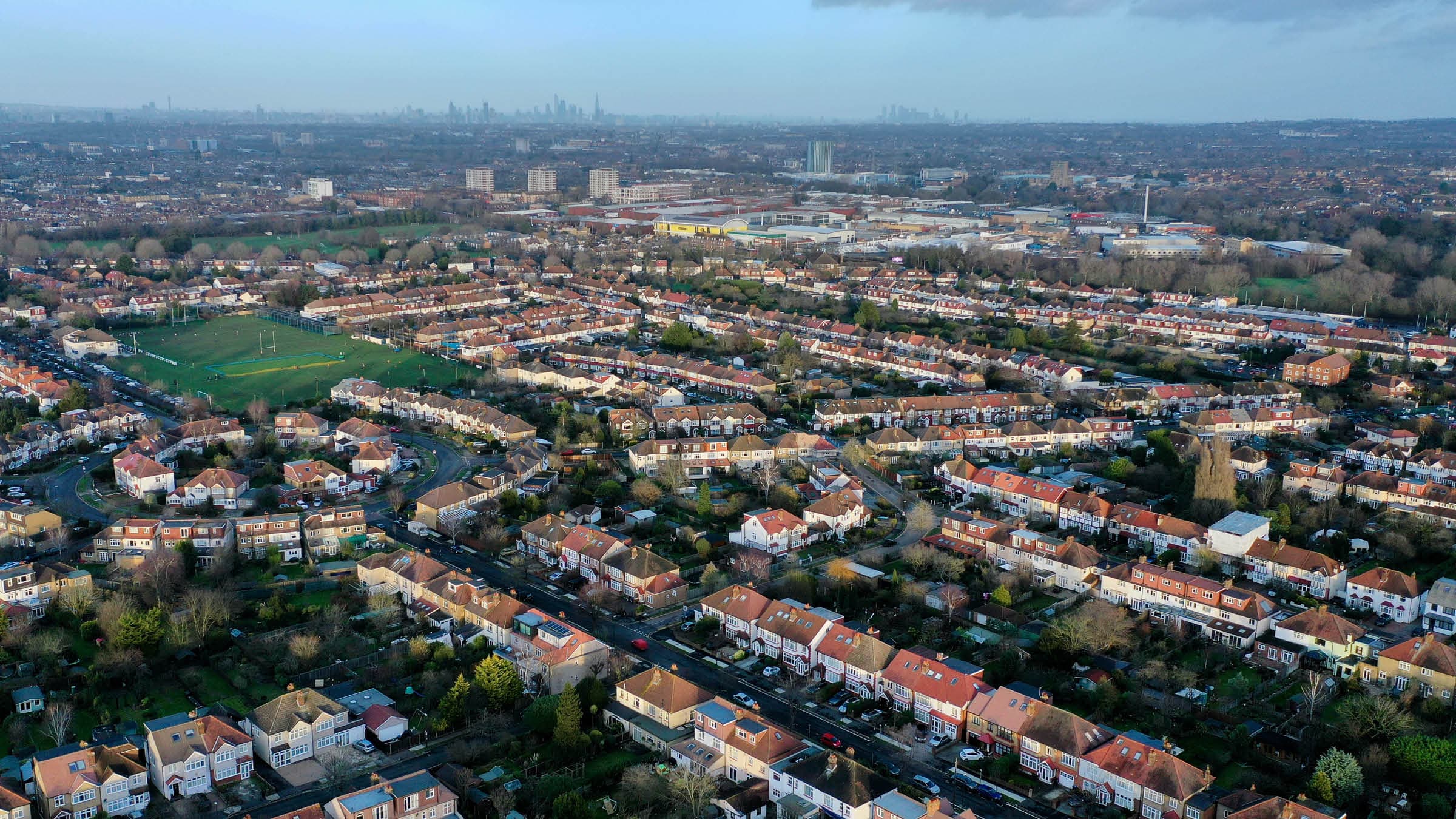Gen Z speak to HUNGER about property market fears: “It’s affordable if you move somewhere boring”

If you’re a resident in the UK then it’s likely things probably aren’t looking too positive right now. We’re currently in the midst of a cost-of-living crisis, which will only worsen as the winter months edge closer. The disastrous mini-budget caused turmoil and resulted in the sacking of former Chancellor Kwasi Kwarteng, and the appointment of Jeremy Hunt, who will seemingly undo much of Prime Minister Liz Truss’ proposed policies. But, lingering in the background — most presciently for young people — is an unprecedented property market emergency, which has scuppered the hopes of many to get on the ladder, while rental prices go through the roof.
One of the major factors affecting housing prices is rising extortionate interest rates. Rates are going up in a bid to combat wild inflation, which in turn means people are seeing an increase in their monthly payments. Two-year to five-year fixed-rate mortgages are particularly popular in the UK, and lock you into a slightly higher interest rate that can’t change over time, and then revert to a variable rate when the set period has elapsed. According to the financial information service Moneyfacts, though, the average two-year fixed rate rose to 6.16 per cent last week, in the wake of Kwarteng’s mini-budget, up from 4.24 per cent at the beginning of last month, and 2.34 in December 2021. This puts it at its highest since the financial crisis of 2008.
Renters are facing a similarly perilous situation. It was recently revealed that the average rental price in London hit a record £533 with almost 30 applicants vying for each property, as landlords cashed in on soaring demand and a lack of new properties coming onto the market. The average rental price in September eclipsed the previous record of £549 set in June, according to the latest data from the estate agents Foxtons, with the fight for property sparking bidding wars, “auditions” and landlords demanding six months to a year rent in advance, per The Guardian. On average, 29 renters compete for each property – slightly down on the 33 applicants per new listing in August – the highest levels seen for at least three years.
In a poll conducted by HUNGER, 93% of people said they would like to own a property at some point. However, when asked if they could afford to do that right now, the response wasn’t as positive. “No, or at least not for a long time,” responded one person. “If I win the lottery maybe,” joked another. So, while the majority of younger people still in fact want homes to settle down in the future, right now a lot of them don’t see that as a feasible option.
Sadly, this issue only seems like it’ll worsen as time passes. The Tories’ 2017 plans of building 300,000 new homes by the mid-2020s have been all but scrapped whilst they have shifted the blame to the Bank of England for soaring mortgage costs. Recently proposed housebuilding plans, meanwhile, will likely come at the expense of environmental protections and affordable home requirements, because, apparently, building expensive homes that no one can afford is of the utmost importance.
Depressingly, it seems as though the only way for people to get their feet firmly on the property ladder is to make some sort of financial or personal sacrifice. And even then, you’re still most likely not going to be purchasing or renting your dream abode.
When our readers were asked what they would have to do or give up to get on the property ladder, the responses revealed the harsh realities of today’s property market. “Give up basically all socialising and eating out,” said one person, while another added: “Would have to save up and get a well-paid job — no going out or renting, live with parents.”
Not only would young people have to give up the things that positively affect their mental health such as socialising, but even when/if you managed to recoup enough funds for your own home, the likelihood of it being anything near your first choice is almost zero. One respondent who recently moved out of London to get on the property ladder explained: “Everyone can afford a house, you just have to move somewhere you don’t want to be.” He doubled down: “It’s affordable if you move far, far north and to somewhere boring.”
And while prices around the rest of the country may not quite match up to the dizzying prices of the capital, that doesn’t mean getting on the property ladder is any easier. Manchester, a previously more affordable alternative to London, has not been exempt from the nation’s housing crisis and while people would have looked at the city as a viable option, rocketing prices have made it just as unattainable. According to the UK House Price Index, house prices have increased by 9 per cent from April 2021 to April 2022 — a rise from £203,153 to £221,485. With the cheaper alternatives also on the rise, it’s hard to see where the younger generation will find a place to call home that suits their aspirations, career and personal preferences.
So, there’s no denying that everything is looking very gloomy and desperate right now. But is there a way for this crisis to clear… Or will owning a home now be reduced to a fantasy — something that’s attainable but highly unlikely? Well, there might actually be light at the end of the tunnel with the news that house prices are on the verge of crashing. According to Fortune, analysts at Credit Suisse claim that higher interest rates, rising inflation and the risk of a recession could lead to house prices falling by 10 to 15 per cent in the next year.
But still, it’s worth bearing in mind that housing uncertainty has a major impact on young people’s mental health and also affects significant life decisions. Earlier this year, it was revealed that 47 per cent of young people say housing influences the jobs they apply for, as reported by Sky News. Millennials and Gen Z’ers held the same sentiment in our poll, with one person admitting that to afford a property they would “have to do a job I hate.”
Dropping house prices, of course, comes with the unwanted byproduct of a recession, which means, for most people, less job security and more volatile pricing in the housing market — which is not ideal for first-time buyers. Those who already have significant savings or investments are amongst those who will likely benefit the most from crashing house prices, which they’ll then be able to accumulate as investments or rental properties. For now, it seems, landlords will remain on top for the foreseeable, with young people left by the wayside.

